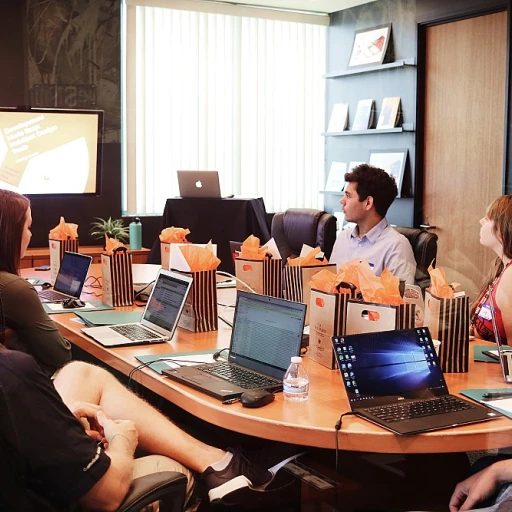Understanding Brand Awareness in Employer Branding
Decoding the Essence of Brand Awareness
In the realm of employer branding, understanding brand awareness is pivotal. It goes beyond mere recognition; it’s about how well a company is perceived by its target audience. This perception is shaped by various factors including the company’s values, culture, and the quality of its products and services. Brand awareness in employer branding is not just about being known, but being known for the right reasons.
Companies like Coca Cola have mastered the art of creating a strong brand presence. They leverage content marketing and social media to build brand visibility and connect with their audience. This connection is crucial as it transforms potential customers into loyal advocates. The goal is to fill the gap between the company’s image and the audience’s perception, ensuring that the brand resonates well with its intended audience.
Building a Strong Brand Identity
To increase brand awareness, businesses often engage in strategic awareness campaigns. These campaigns are designed to highlight the unique aspects of a brand, making it stand out in a crowded market. By utilizing digital marketing and advertising, companies can reach a broader audience, thereby enhancing their brand visibility. User-generated content also plays a significant role in this process, as it adds authenticity and relatability to the brand’s image.
For those interested in diving deeper into how brand awareness can be effectively integrated into employer branding strategies, you can explore more insights on enhancing recruitment through employer branding strategies. This resource provides valuable information on how to align brand awareness with recruitment efforts, ensuring a cohesive and attractive employer brand.
Key Trends Shaping Employer Branding
The ever-evolving landscape of employer branding
Employer branding today is being shaped by several key trends that are pushing companies to re-evaluate their strategies. Businesses striving to enhance employer branding are focusing on both internal and external efforts. Here's a look at some prominent trends influencing this space:
- Embracing Authenticity: In an age where audiences crave genuine connections, brands are bolstering their efforts to present authentic stories. Sharing real employee experiences and transparent business practices help build trust and credibility.
- Increased Reliance on Digital Channels: With the surge in digital media, companies are leveraging social platforms to increase brand awareness. Engaging content marketing through platforms like LinkedIn, Twitter, and Instagram is crucial to reach a broad audience.
- Focus on Employee Advocacy: User-generated content is fast becoming a powerful tool. When employees share their own positive experiences, it amplifies brand visibility and serves as a trusted voice for potential employees.
- Personalized Marketing Efforts: Brands are tailoring awareness campaigns for specific target audiences. This not only increases engagement but allows businesses to build brand loyalty more effectively.
- Data-Driven Insights: Leveraging analytics to glean insights about audience preferences helps in refining awareness campaigns, ensuring that marketing efforts align with customer expectations and preferences.
These trends underscore the critical role content and media play in shaping employer branding. As companies like Coca Cola show through their strategic campaigns, aligning brand messaging with audience needs is essential for success.
Strategies Used by Leading Companies
Innovative Approaches in Building Employer Brand Visibility
In the ever-evolving landscape of employer branding, leading companies excel by adopting innovative strategies tailored to resonate with their target audience and enhance brand awareness. These strategies don't just fill traditional advertising slots; instead, they create memorable experiences that go beyond conventional marketing.
One prevalent approach involves the integration of content marketing with digital media. Businesses have turned to content that speaks directly to their audience, aligning with both their needs and interests. By strategically crafting these campaigns, brands ensure that their message is not only received but valued, leading to increased brand visibility.
Moreover, leveraging social media platforms has become indispensable for enhancing brand awareness. Companies utilize social media to engage with customers through interactive campaigns and authentic storytelling. This approach facilitates a deeper connection with the audience, often enhanced by user-generated content that naturally augments credibility and trust.
Nurturing brand awareness also requires businesses to synchronize product and customer insights with advertising strategies. This alignment ensures that campaigns are not only impactful but also reflective of customer expectations and brand promises. A prime example is Coca-Cola's campaigns that seamlessly blend their brand message with audience expectations, creating a powerful brand association.
Additionally, brands are increasingly looking beyond traditional marketing methods. Awareness campaigns that incorporate corporate social responsibility initiatives and collaborative community engagements provide unique touchpoints with the audience, fostering a positive brand image.
For more on how these top companies harness talent to enhance employer branding, visit
harnessing talent to enhance employer branding.
Harnessing Social Media and Digital Platforms for Brand Visibility
In today's interconnected world, the power of social media and digital platforms cannot be underestimated. They play a pivotal role in creating brand awareness and allowing companies to connect with their target audience. Effective use of these platforms can vastly increase brand visibility and, crucially, facilitate meaningful engagement with potential customers.
One of the most effective approaches companies use is integrating social media marketing into their broader brand campaigns. This strategy involves crafting content that resonates with the audience and speaks directly to their interests and needs. Additionally, content marketing is being leveraged to fill the informational gaps consumers may have about products or services, ultimately building brand loyalty.
With audience engagement at its heart, companies are using digital marketing to craft awareness campaigns that are both memorable and effective. By utilizing user-generated content, brands can create a more authentic connection with their audience, as consumers often trust content from peers more than traditional advertising.
Examples of successful social media campaigns abound. For instance, brands such as Coca-Cola have famously used social media platforms to conduct engaging and far-reaching campaigns, effectively increasing brand recognition and deepening customer loyalty.
The impact of social media is not just in direct engagement but also in data insights. Digital platforms offer invaluable metrics that allow companies to measure the success of their campaigns, evaluate customer interactions, and adapt their strategies in real-time.
In conclusion, social media and digital platforms are integral to modern employer branding strategies. By effectively leveraging these tools, companies can build a strong awareness campaign, ensuring their brand stands out in an increasingly crowded marketplace.
Measuring Brand Awareness Success
Gauging the Impact of Your Efforts
When it comes to determining the effectiveness of your employer branding initiatives, measuring brand awareness success isn't just a nice-to-have; it's essential for ongoing growth and adaptation.
To begin, it’s crucial to establish clear, measurable objectives from the start. These could range from increasing brand visibility on social platforms to boosting customer engagement with new product lines. Clearly defined goals can guide your content marketing strategies and make assessing success much more straightforward.
Using digital marketing tools is an effective way to track media interactions with your brand's campaigns. Metrics such as social media shares, likes, comments, and overall reach can help determine if your awareness campaign resonates with your target audience. Platforms like Google Analytics offer insights into web traffic driven by these marketing efforts, providing a holistic view of your campaigns' reach and engagement levels.
Another key area is your audience's response. This involves monitoring user-generated content, reviews, and testimonials related to your business. Awareness brand campaigns, especially in the digital sphere, invite customer interaction—an invaluable opportunity to gather direct insights from those who engage with your brand. The information obtained can help in fine-tuning advertising strategies and increasing brand loyalty.
It's important to note great campaign examples like those from leading brands, such as Coca Cola, which employ well-crafted and targeted digital marketing strategies to build brand affinity and loyalty. By assessing these strategies, other companies can learn how to increase brand awareness through innovative content creation and strategic product advertising.
Finally, while measuring success helps understand what works, remember it also reveals opportunities for improvement. Analyze what components did not perform well and consider if anything detoured from your initial marketing objectives. Having a willingness to adapt your strategies ensures that your employer branding efforts remain both relevant and effective in reaching your target customers.
Challenges and Opportunities in Employer Branding
Overcoming Hurdles and Seizing Chances in Employer Branding
Navigating the ever-evolving landscape of employer branding is not without its challenges. Companies are constantly on the lookout to fill gaps in their brand strategy and increase brand visibility. Understanding and effectively engaging the target audience can be a daunting task given the diverse platforms available today. However, with strategic planning and insights, these challenges can be transformed into opportunities.
Firstly, one of the significant hurdles is building a cohesive brand identity across various platforms. Brands must ensure that their core message is consistent, whether they are doing content marketing through user-generated content or crafting a large-scale awareness campaign. By focusing on a uniform brand message, organizations can create a cohesive brand experience that resonates with their audience.
Another challenge is the saturation of media marketing channels. It's easy for an awareness brand to get lost amidst countless digital marketing and advertising campaigns. Companies need to develop unique campaign examples that capture attention and foster genuine connections with potential customers. Learning from successful brands like Coca Cola, which effectively uses both traditional and digital marketing strategies, can provide valuable insights.
Furthermore, harnessing social media and leveraging it with the right content is essential. Social media provides a platform to engage directly with the audience, gather feedback, and build brand loyalty. However, managing these channels proficiently demands time and resources. The key is to identify where your target audience is most active and deliver content that speaks directly to their interests and needs.
Employers also face the challenge of measuring the success of their brand awareness campaigns. Success metrics should be clearly defined, whether it’s an increase in brand recognition, higher customer engagement, or an enhanced reputation as a top employer. By aligning metrics with business goals, companies can understand the impact of their campaigns and adjust strategies accordingly.
Despite these challenges, opportunities abound. By embracing innovative strategies and capitalizing on the insights gathered from media marketing efforts, companies can position themselves as leaders in the employer branding realm. Building a strong, recognizable brand not only attracts top talent but also cultivates a loyal customer base, ultimately driving long-term success.














